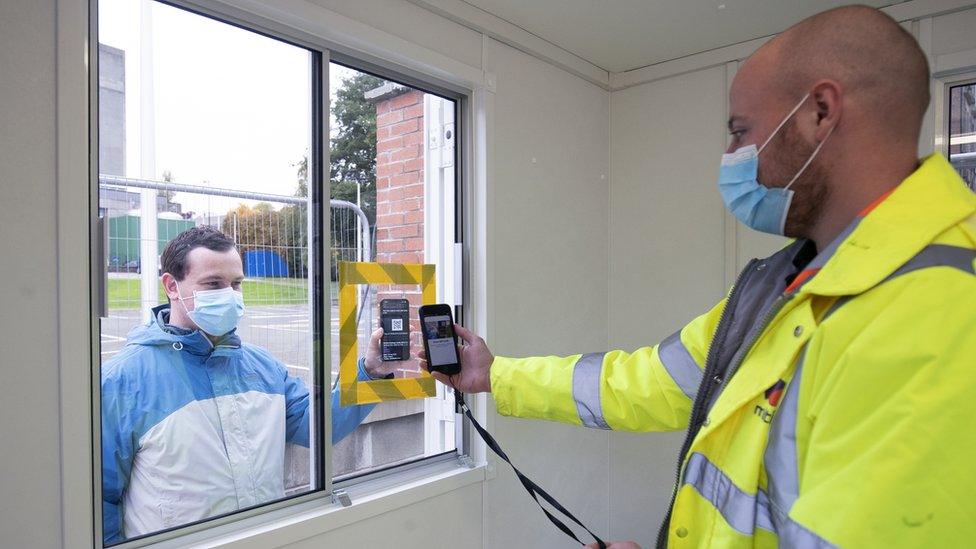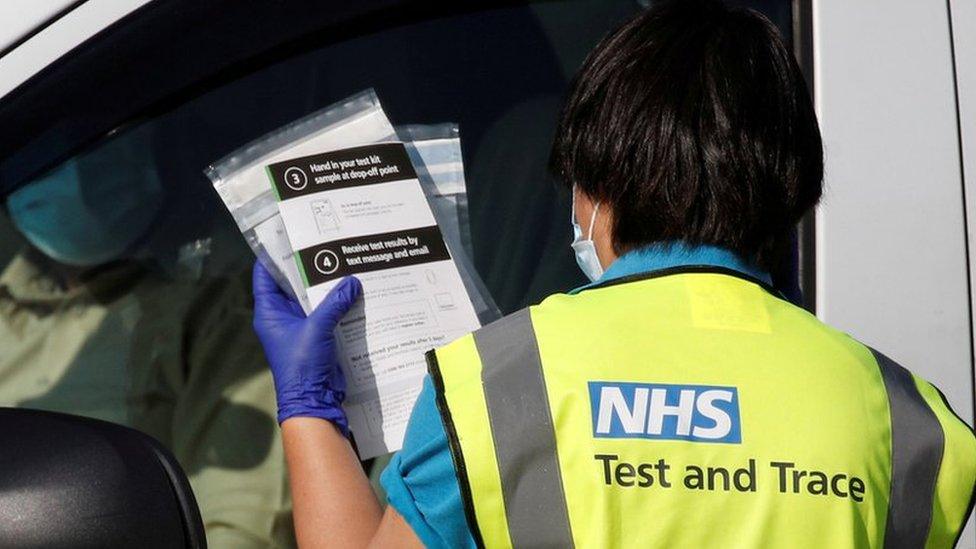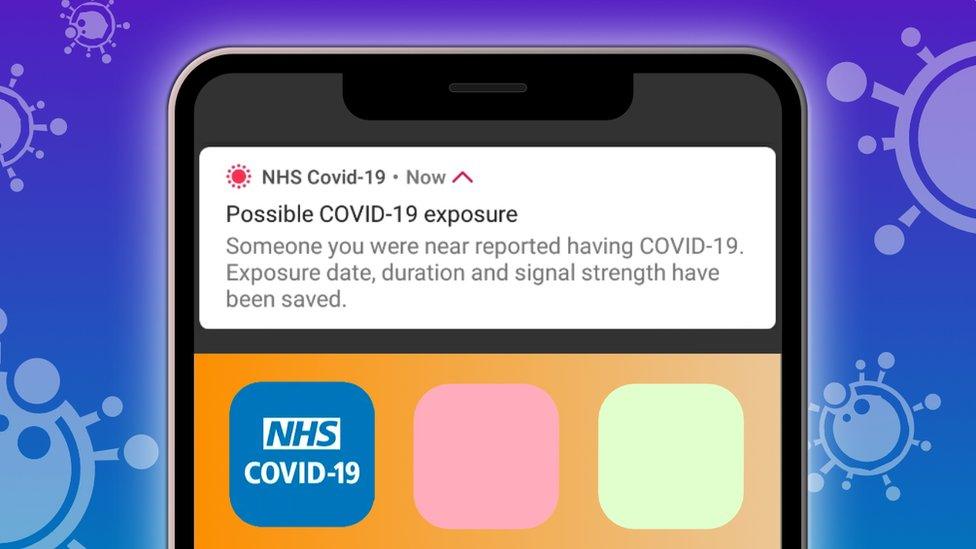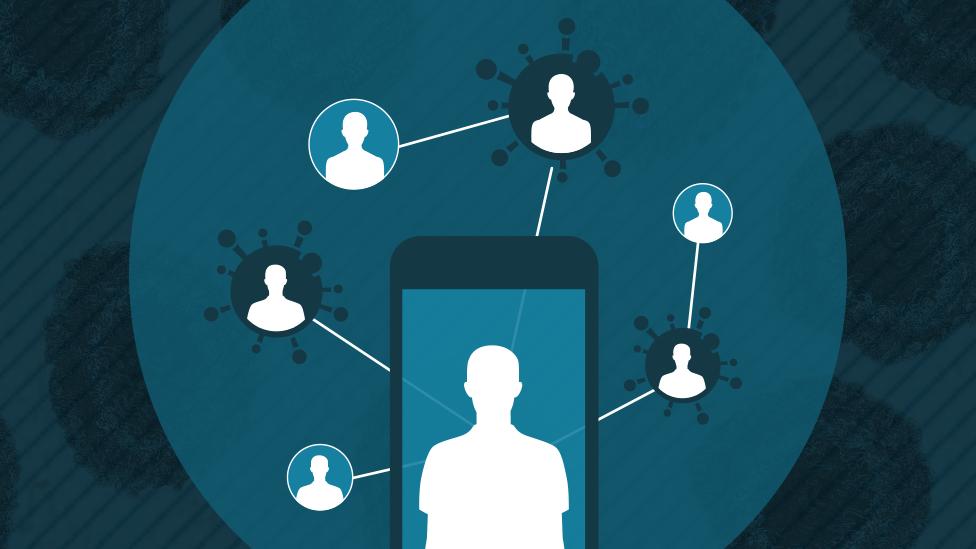Coronavirus: Police get access to NHS Test and Trace self-isolation data
- Published

People in England who have been told to self-isolate through NHS Test and Trace could have their details shared with the police on a "case-by-case basis".
Forces will have access to information telling them if an individual has been told to self-isolate, the Department of Health and Social Care (DHSC) said.
But the British Medical Association said it was worried police involvement might put people off being tested.
In England there is a legal requirement to isolate after a positive test.
Police will not have access to data from the NHS Covid-19 app. The app is anonymous so the government does not know who has been sent instructions to self-isolate.
Just under 11% of people traced as a close contact of someone with coronavirus said they self-isolated for 14 days, according to a government-commissioned study, external.
Reasons given for breaking self-isolation included believing there was no point isolating from strangers if you cannot properly distance from those in your household; not developing symptoms; or visiting shops or a pharmacy.
'Appropriate safeguards'
The DHSC updated its guidance about how testing data will be handled on Friday.
A memorandum of understanding was issued between the DHSC and National Police Chiefs' Council to allow forces to access information that tells them if a "specific individual" has been told to self-isolate, as first reported by the Health Service Journal, external.
Those who fail to do so face fines starting at £1,000, which can increase to £10,000 for serial offenders or serious breaches.
A DHSC spokesman said it was a legal requirement for people who had tested positive and their close contacts to self-isolate when formally notified to do so.
"The memorandum of understanding ensures that information is shared with appropriate safeguards and in accordance with the law. No testing or health data is shared in this process," he said.
A spokesman for the British Medical Association, which represents doctors in the UK, said the test-and-trace system needed "the full confidence of the public" to be effective.
He said: "We are already concerned that some people are deterred from being tested because they are anxious about loss of income should they need to self-isolate - and we are worried should police involvement add to this.
"Therefore, the government's emphasis should be on providing support to people - financial and otherwise - if they need to self-isolate, so that no-one is deterred from coming forward for a test."

LOCKDOWN LOOK-UP: The rules in your area
THREE TIERS: How will the system work?
SOCIAL DISTANCING: Can I give my friends a hug?
TESTING: How do I get a virus test?

A National Police Chiefs' Council spokesperson said forces would continue to encourage "voluntary compliance" but would enforce regulations and issue fines where appropriate.
"Officers will engage with individuals to establish their circumstances, using their discretion wherever it is reasonable to do so," they said.
Sir Ed Davey, leader of the Liberal Democrats, said ministers should "reverse the policy urgently".
"Anything that further undermines the public's dwindling trust in this government's handling of the pandemic is damaging, and few things could have been better designed to do that, than this," he said.
Meanwhile, Baroness Dido Harding, the head of NHS Test and Trace, has told the Sunday Times, external that the Test and Trace service was not a "silver bullet".
"It has never been and it never will be," she said, adding it is one of a number of different interventions needed to control Covid-19.

YOUR WORK, YOUR MONEY: Is my bar business better off in Tier 3?
WHAT PLANET ARE WE ON: Sir David Attenborough talks about the impact of the pandemic on tackling climate change

- Published16 October 2020

- Published13 October 2020

- Published5 August 2021
